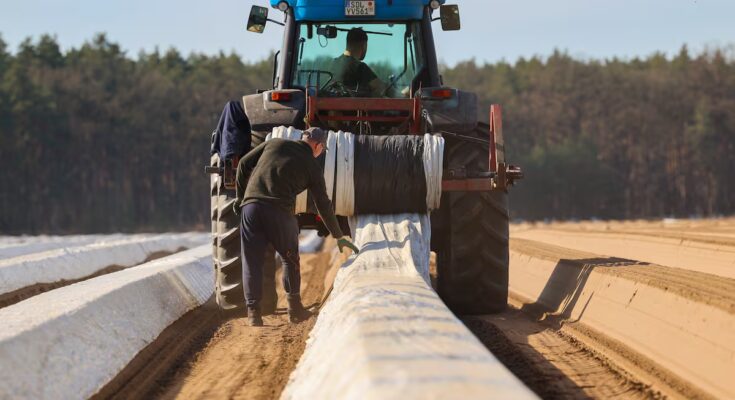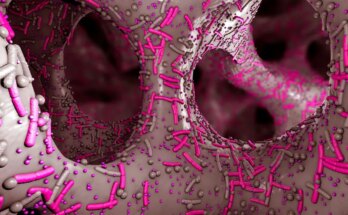German farmers will again receive subsidies for agricultural diesel starting next year. The new coalition government led by the conservative Friedrich Merz has finally decided to reverse the decision of the previous executive of the Social Democrat Olaf Scholz to end the tax deduction for fuel used in German fields in the context of the budget problems that Germany has been facing for some time.
Images of more than 3,000 tractors blocking Berlin’s famous Brandenburg Gate early last year went around the world, and protests against the decision to phase out this tax break continued throughout last year. However, the pressure exerted by farmers’ associations seems to have finally borne fruit.
The conservatives had already promised in the opposition and in the last election campaign that Germany would again benefit from this subsidy, first introduced in 1951 to ensure the competitiveness of the country’s agricultural economy, and this was negotiated in the coalition contract signed in April with the Social Democrats after the general elections in February. Furthermore, the new Minister of Agriculture, Alois Rainer, belongs to the Christian Social Union (CSU), a very different ideological profile from that of his predecessor, the Green politician Cem Özdemir. The CSU politician grew up in the Bavarian Forest, in the town of Haibach where his family had an inn and a butcher’s shop, which led him to train as a butcher before making the leap into politics and joining the conservative group.
The Union – formed by Friedrich Merz’s Christian Democratic Union (CDU) and the CSU – with the help of the votes of the Social Democratic Party (SPD) managed to reverse the previous decision of the German parliament last week. In this way, agricultural and forestry companies will once again be able to obtain a reimbursement of 21.48 cents per liter of the energy tax on diesel. This will cost the German government around 430 million euros a year at a time when the Executive continues to struggle to address a large budget hole, while the country fails to put behind it the biggest period of stagnation since the Second World War.
“The agricultural tax refund is fully restored. This is a real relief for our farms, which have breathing space again,” the Agriculture Minister said. For the president of the German Farmers’ Association (DBV), Joachim Rukwied, this revocation is the result of his “political pressure”. “This is an important step to strengthen the competitiveness of our national agriculture in the European internal market,” he said in a press release.
The only parliamentary group that voted against in the Bundestag was the Greens, who criticized the fact that the allocation of so many millions of euros per year for combustion engines is contrary to steps taken in climate policy. “It is not the answer to the problems of our time,” said Ophelia Nick, the Greens’ agricultural policy spokeswoman.
For environmentalists this does not solve the future problems of agriculture, but simply consolidates the previous situation and rewards behavior that does not respect the environment. They say agricultural subsidies should focus more on climate protection, biodiversity and animal welfare in close European coordination, as set out in EU agricultural policy through new green rules.
From the German environmental aid organization (Deutsche Umwelthilfe) they speak of “a step backwards” and criticize that it does not fit with the German government’s goal of making agriculture more sustainable. In his opinion, this money could be better invested in other ways, for example in the sustainable transformation of agriculture and supporting farmers in this journey, rather than reintroducing fossil fuel subsidies.
Economists like Friedrich Heinemann of the ZEW Economic Institute think the same way. “The subsidy for agricultural diesel reduces the incentives for agricultural machinery manufacturers to offer fuel-efficient machines or to promote innovations in the sense of hybrid and alternative propulsion,” he explains. “Subsidizing a fossil fuel has become an anachronism that seems out of place from the point of view of economic policy. A phase-out would not impose an excessive burden on agriculture. The percentage of this expenditure in the total costs is too small for this. Therefore, the most logical thing would be to eliminate it or reform it to achieve a more efficient and environmentally friendly promotion.”
To understand the importance of this sector we must take into account that, even if when we think of Germany its large industrial network immediately comes to mind, the country also has an important agricultural economy. Despite its dense population, half of the country’s land area is dedicated to agriculture. According to data from the German Ministry of Agriculture, almost one million people produce goods worth around 59 billion euros per year on around 270,000 farms. This makes German agriculture the fourth largest producer in the European Union, even though economically it represents only 0.8% of German GDP. Specifically, more than half of the agricultural area, pastures and cultivated land are used for the production of feed to feed the more than 200 million farm animals in Germany.
But as in many countries, rural areas are facing major challenges due to demographic and climate change. Agriculture must constantly improve its competitiveness in response to globalization and technical progress. Many farmers need this diesel subsidy to cope with the continuing decline in prices. It should also be taken into account that in Germany the diesel tax represented a high cost and a distortion of competition. According to an analysis by the Bavarian Agricultural Bulletin, without this reduction, Germany would be the fourth most expensive fuel for farmers in a European price comparison.



